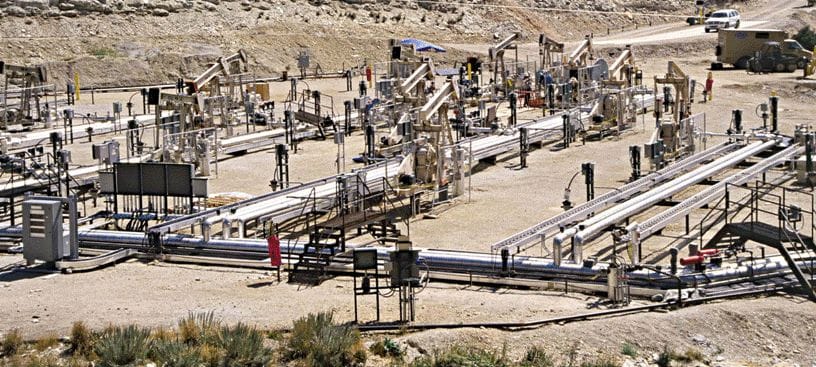The U.S. Has A Lot Of Shale Oil, So What?


Quite a few conservative commentators are making waves about a Government Accountability Office statement (PDF) which says that 1.5 trillion barrels of shale oil in Colorado, Utah, and Wyoming may be recoverable.
Their reactions are all along the same lines: this shale-oil reserve could "by itself supply domestic oil consumption for more than 200 years", and "will Obama, in a possible second term, block the development of the resources that can assure America’s economic supremacy for generations?"
Typically simplistic. If only it were that easy.
Few, if any, of those conservative oil-boosters are reading further into the GAO's report. Two pages later, it mentions that there are two ways to get the oil out of the shale.
The first involves massive strip-mining to get the rock out, then heating it to 650 degrees plus to release the oil. That method has three major commercial problems: it can never get at the bulk of the reserves, which are buried under thousands of feet of non-oily rock, the cost of the power (and water to make that power) to heat the rock makes the oil it produces very expensive, and there are no roads suitable to get the equipment needed for large-scale mining. These all add up to a trickle of oil at very high prices, not the economic-powerhouse gluttony the right wing think these shale reserves represent. It also has non-commercial problems: the strip mining of vast areas of what is currently nature preserve, massive regional air and water pollution and of course the runaway effect dumping so much carbon (from burning all that oil) into the earth's atmosphere would have on global warming.
The second method involves drilling holes, then lowering very powerful heaters to free the oil from its shale matrix in situ and pumping the oil out. In theory, this opens up even deep-buried reserves but as the reports states, the biggest commercial problem there is that there is no proven commercially-viable way of doing this. Everything done so far has been "pilot", "experimental", "small scale". Best estimates say commercial technology for this method of extraction are 10-20 years away. Even then, it will mean expensive oil for the same reason strip-mining does: the cost of power needed to heat and the cost of ever-scarcer water both for power-generation and in this case for fracking. The same non-commercial problems still apply, and you can add likely massive contamination of ground water reserves that are essential for urban areas and agriculture across several states.
All of this adds up to why shale oil isn't a pipe-dream solution to our energy woes and doesn't mean Americans can fuel gas-guzzling SUVs for a dollar a gallon for a century to come. There's a reason oil experts differentiate between theoretical reserves and commercially exploitable reserves. Shale oil is expensive oil and even on a purely robber-baron capitalist ethic isn't worth squat unless other oil is just as expensive.
Luckily for the shale-oil lobby (and unluckily for Republican oil demagogues), while we may not have seen "peak oil" yet we have already passed a more telling tipping point: that of "peak cheap oil, and, says the IMF, we may soon have a permanent doubling of oil prices.
Sorry, but any triumphalism about America's energy supremacy in the century to come would be vastly, incredibly, misplaced.
This article was excerpted from The Agonist, where it first appeared.



